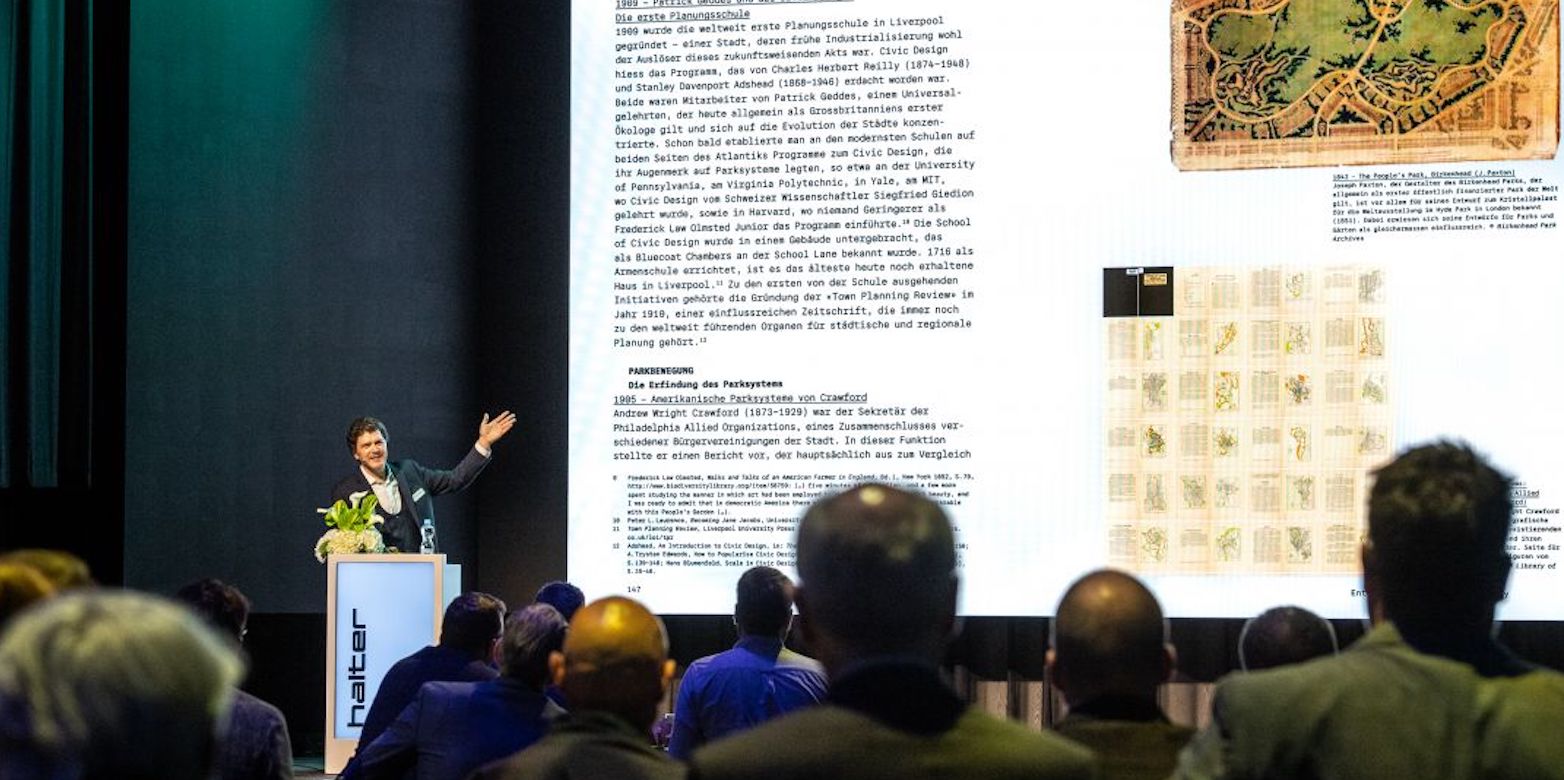The future of civic landscapes
Dr Matthew Skjonsberg pointed to the future of settlement systems through the lens of history in a keynote presentation to Swiss civic organisations at Gësprache am Fluss.

"The creation of regional park systems is central to the evolution of civic design," said Dr Matthew Skjonsberg in the keynote address at an annual conference of Swiss civic organisations, known as Gësprache am Fluss, or Conversations on the River. Speaking on the theme of ‘The Future of Civic Landscapes’ with a focus on environmental etiology and public health, Dr Skjonsberg, FCL Global Associate Director (Zurich Hub), presented a chronological overview of the evolution of civic design as evidenced in the work that was central to it – the creation of regional park systems.
He pointed to the future of settlement systems through the lens of history, showing that before the industrial agenda of urban design, which focuses on technology and economy, the social agenda of civic design promoted ecology and community through park systems.
Following an overview of historic and contemporary park systems, new multi-modal typologies are woven into intergenerational projects – including linear skate parks and active mobility corridors for wheelchairs, scooters and pedestrians bordering ‘hidden rivers’ – and landscape restoration, as well as ecological networks.
Dr Skonsberg's essay on external page A New Look at Civic Design is available in Komplex (in German). The lecture also provided an overview of research conducted at FCL Global and offered a preview of his forthcoming exhibition and book, ‘Living Cities: Three Centuries of Park Systems’ (Park Books, 2022).